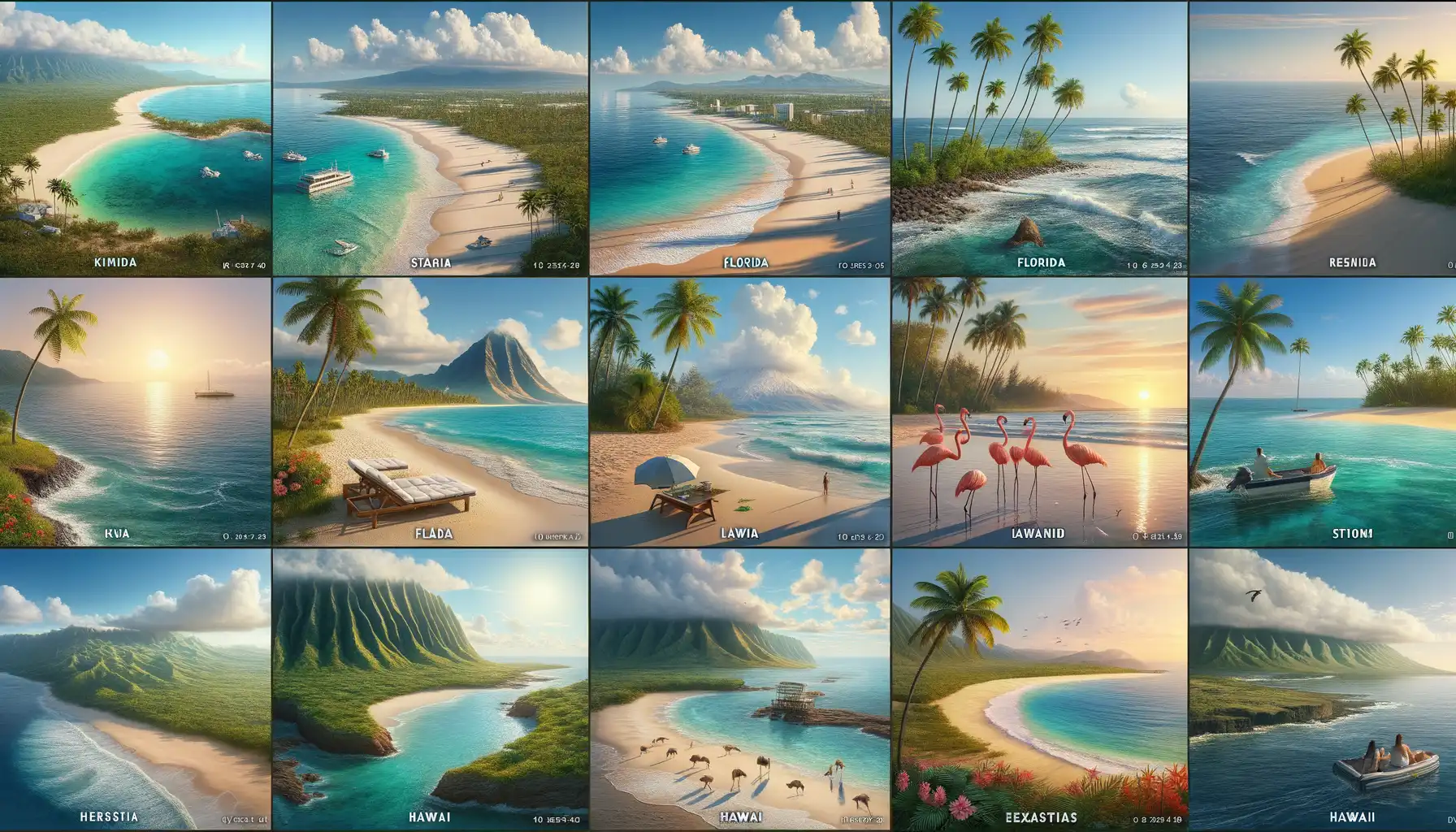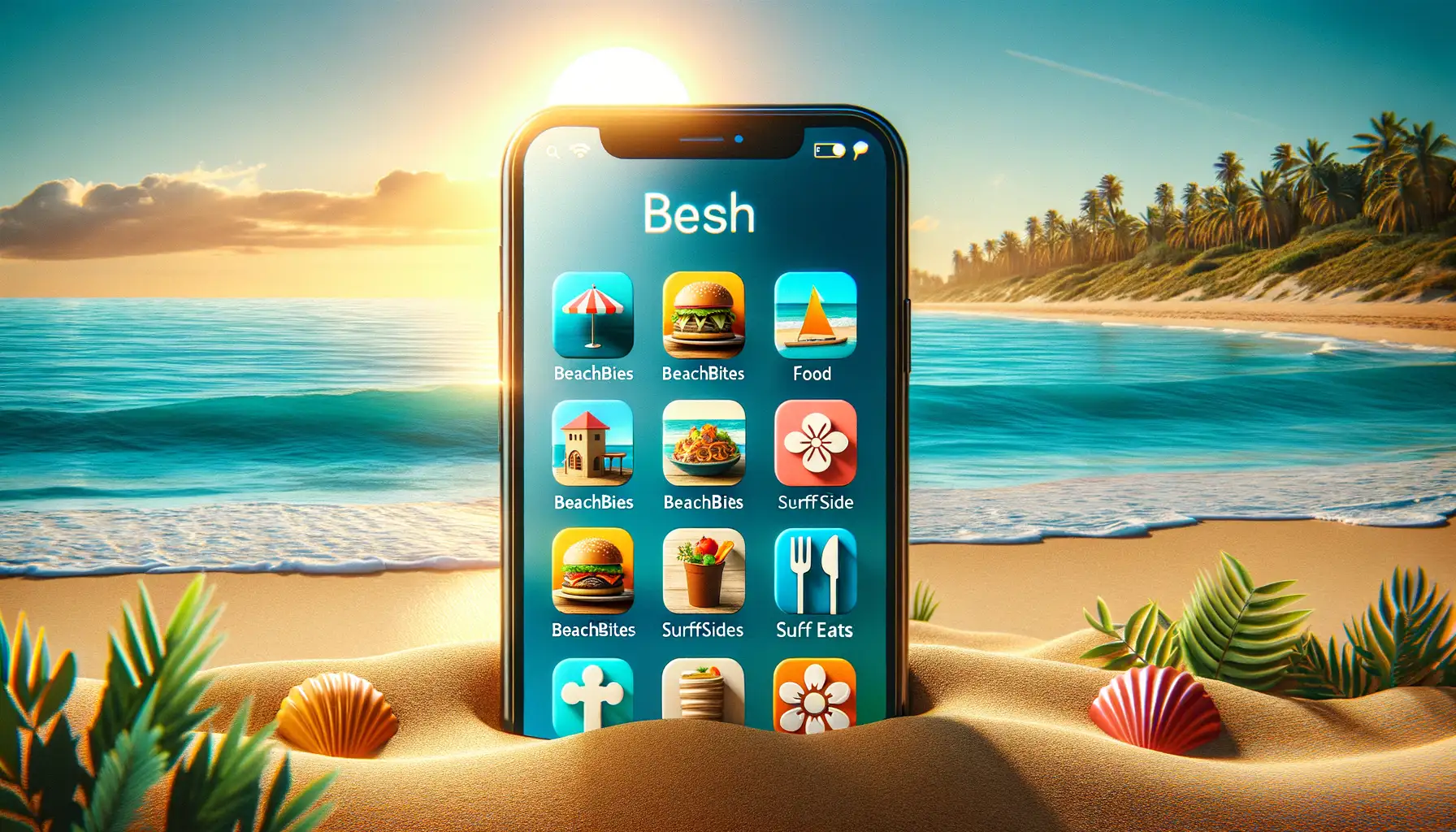Introduction to AI in Coastal Tourism Marketing
Coastal tourism is just like the tides—constantly shifting, evolving, and brimming with energy. Now imagine harnessing cutting-edge technology to ride those waves more skillfully than ever before. Enter Artificial Intelligence (AI), the game-changer for businesses located in the heart of sandy beaches and oceanfront towns. It’s fast becoming the secret sauce behind unforgettable holidays and skyrocketing customer loyalty.
Why AI is Making Waves in Coastal Travel Marketing
Picture this: You’re running a boutique seaside resort. Guests flock from around the world, expecting personalized service and dreamy experiences. But how do you predict each visitor’s preferences—who prefers sunrise yoga on the beach or who’s craving a fresh lobster dinner? This is where AI steps in, acting as your digital lighthouse, guiding marketing strategies with pinpoint precision. By analyzing oceans of data (pun intended), it helps you craft tailored offers that feel anything but cookie-cutter.
Here’s what makes AI such a powerful ally:
- Real-time insights: Track booking patterns, weather influences, and even local events to stay ahead.
- Hyper-personalization: AI tools dive deep into customer data to tailor experiences that feel uniquely designed for each guest.
- Effortless automation: From chatbots answering midnight queries to email campaigns that feel personally written, AI takes repetitive tasks off your plate.
Breathing Life into Old-School Marketing
Traditional methods—think printed brochures or generic social media ads—may feel as outdated as seashell collecting in a digital world. Coastal tourism now thrives on dynamic AI-driven trends like augmented reality tours and predictive recommendations. For instance, an AI-powered app can suggest secret snorkeling spots during a guest’s stay based on their activity history or even recommend sunscreen brands based on the UV levels that day. How’s that for next-level personalization?
With AI in your toolbox, coastal tourism marketing isn’t about shouting into the void anymore. It’s about creating genuine connections, turning first-time visitors into lifelong enthusiasts, and bringing the serene magic of the coast alive in ways we couldn’t have dreamed of before.
Key Applications of AI in Coastal Tourism
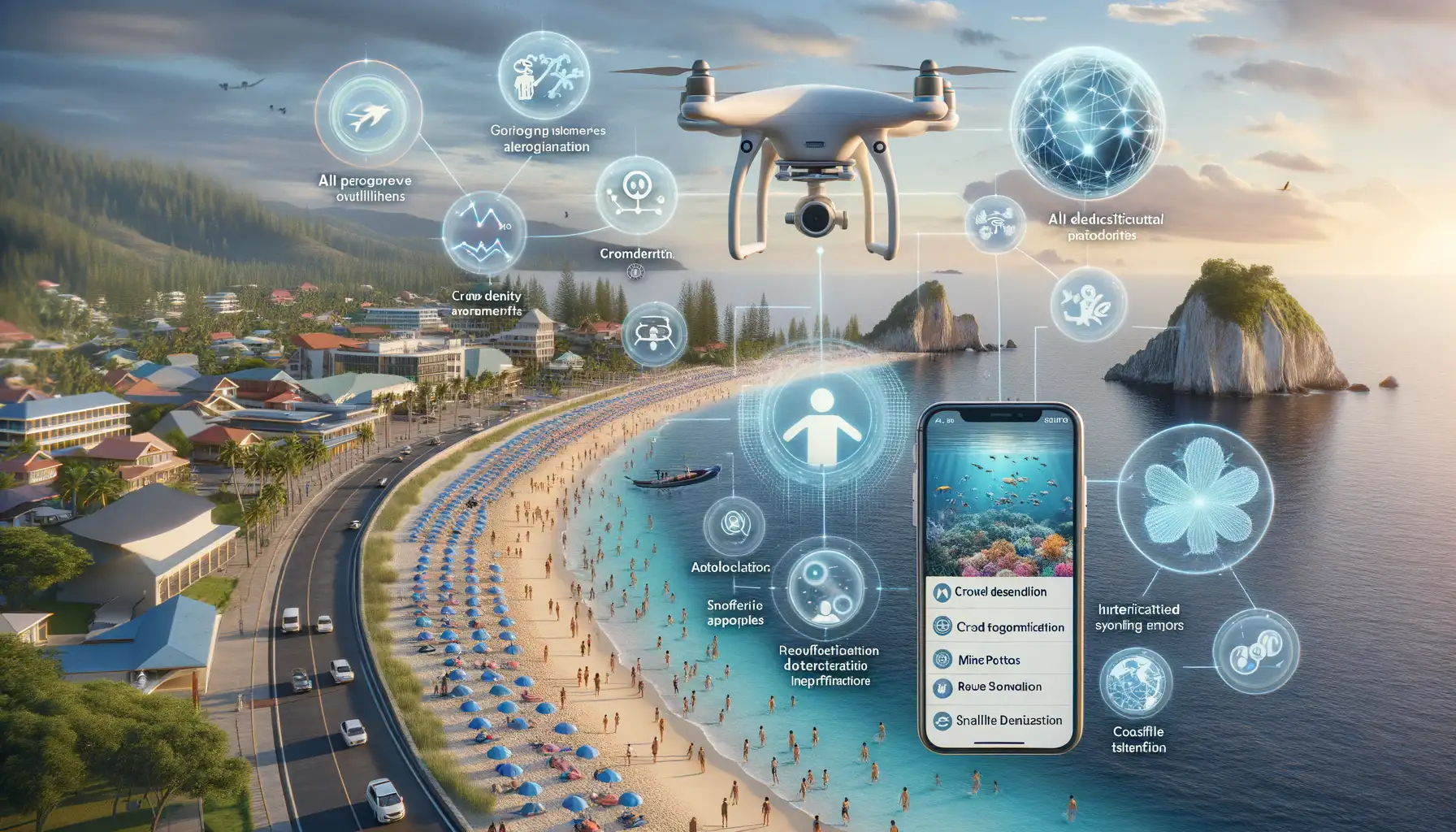
AI-Powered Personalization for Coastal Tourists
Imagine walking along the sandy shores, feeling the sea breeze, when your phone pings with a suggestion: “Today’s sunset will be magical. How about a private beach dinner at 7 PM?” This is no wild coincidence—it’s the magic of AI-powered personalization. By analyzing your preferences, from past bookings to real-time location data, AI curates a tailored experience just for you. It’s like having a personal travel assistant in your pocket.
Hotels and resorts by the coast now harness AI to recommend ideal activities. Whether it’s knowing that your heart races for snorkeling or that you prefer tranquil coastal hikes, AI ensures every moment of your trip feels uniquely yours. Suddenly, your vacation isn’t just another getaway—it’s your story, perfectly scripted.
Revolutionizing Local Experiences with Smart Insights
Coastal tourism thrives on local attractions, but with AI, these hidden gems shine brighter than ever. How? With predictive analytics and smart tools, visitors can enjoy experiences such as:
- Customized tour suggestions, ensuring no guest misses that tucked-away lighthouse or secret tide pool.
- Real-time insights into weather changes—because no one wants kayaking plans spoiled by surprise rain!
- Interactive apps that offer audio walking tours of coastal villages, rich in history and culture.
AI doesn’t replace the charm of these destinations—it amplifies it, letting you see them through fresh eyes, like stepping into a postcard come alive.
Benefits of AI for Coastal Tourism Businesses
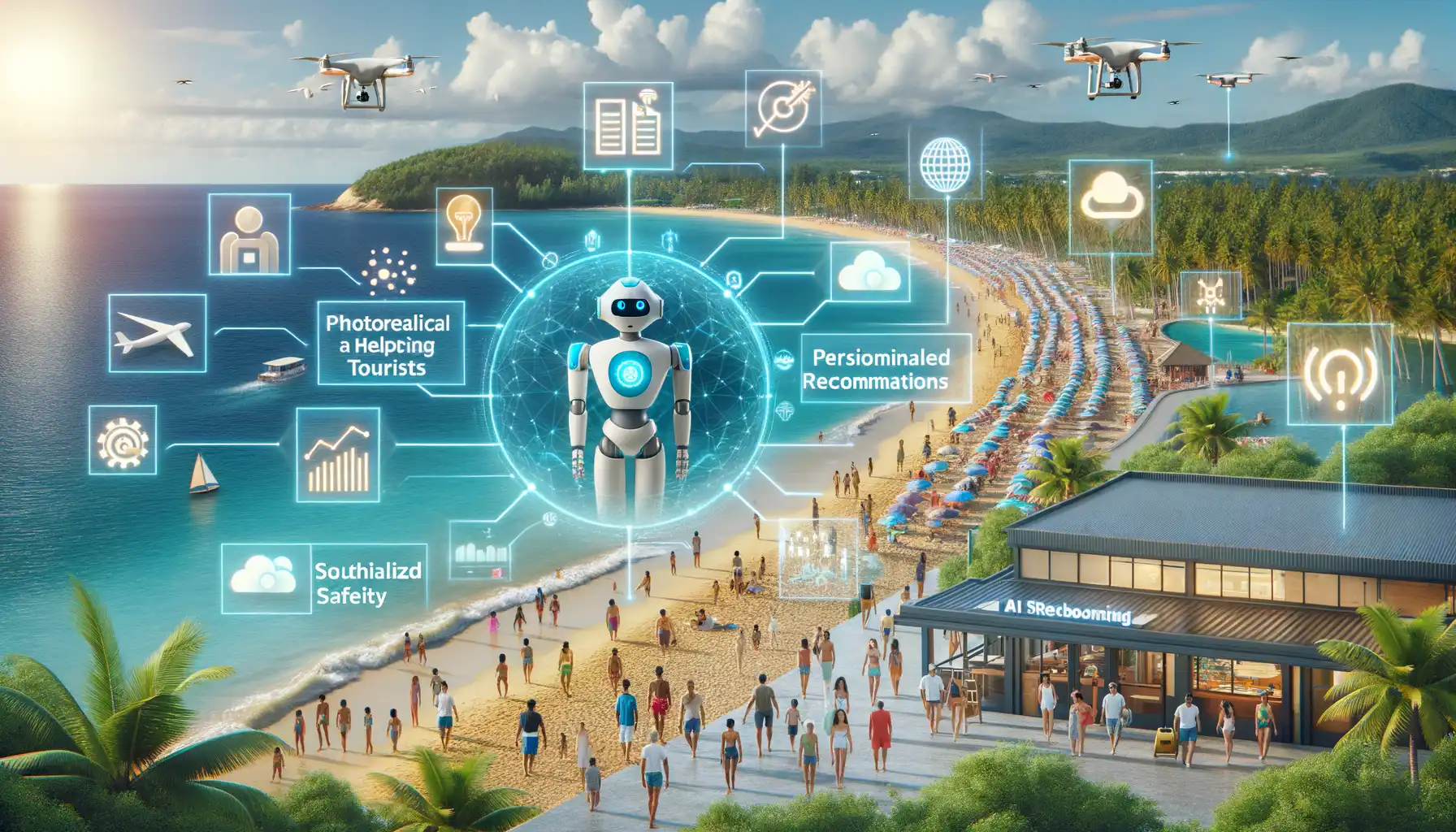
Enhanced Guest Experiences with AI
Imagine a guest stepping onto your beachfront property and feeling like every little detail was designed just for them. With AI-powered personalization, that dream becomes a reality. AI tools analyze customer preferences—from preferred activities like paddleboarding to dining choices such as fresh seafood—and deliver tailored recommendations. It’s like having an all-knowing concierge working behind the scenes.
Not only does this boost guest happiness, but it also drives loyalty. For example, if Sarah books a seaside villa and receives a personalized email suggesting sunrise yoga on the beach—because AI noted her interest in wellness retreats—she’s already picturing herself coming back next summer.
AI also eliminates guesswork by predicting travel patterns. Tools like predictive analytics help ensure your rooms are ready during peak seasons, while avoiding empty downtime. This means smarter business decisions, happier guests, and less stress for you.
- Dynamic pricing strategies: Maximize revenue without scaring away budget-conscious travelers.
- Real-time language translation: Communicate effortlessly with international guests, breaking down language barriers.
Operational Costs? Slashed.
Are repetitive tasks eating into your time? AI can handle those like a pro! Chatbots answer inquiries 24/7, freeing up your team to focus on creating unforgettable moments. Automated social media tools schedule posts showcasing your coastal paradise, while sentiment analysis gives invaluable insights about guest reviews.
Picture cutting advertising costs by running hyper-effective campaigns targeted through AI algorithms. You’re not just throwing a net into the sea—you’re catching the exact fish you want.
Challenges and Ethical Considerations in AI Implementation

Untangling the Knots in AI Deployment
Introducing artificial intelligence into the world of coastal tourism isn’t all smooth sailing. While it may seem like a dreamboat solution, there are real challenges lurking beneath the surface. For starters, implementing AI technology often demands significant financial investment—think hefty software costs, staff training, and ongoing maintenance. Small, family-run beach resorts or local eco-tourism startups might find themselves feeling left behind in this digital race.
And let’s not forget about data collection—feeding AI the information it craves to function effectively. This means relying on vast amounts of personal data from tourists: where they travel, what they love, their spending habits. The question is, how do you build trust with travelers while they hand over these golden nuggets of information?
- Who has access to this data?
- Is it stored securely?
- Could it be misused?
These aren’t just technical questions—they’re ethical dilemmas that demand care and transparency.
The Thin Line Between Assistance and Intrusion
AI can sometimes feel like a double-edged sword. Virtual assistants that craft tailored beach itineraries or suggest sunset cruise deals? Amazing. But when these tools start sending hyper-personalized ads that hit a little too close to home, guests might feel like they’re being watched. A honeymooner doesn’t want to wonder if their intimate dinner choice is being analyzed for marketing insights. Striking the right balance between convenience and customer privacy is an art—and a responsibility.
Plus, let’s not ignore the human factor. Over-reliance on AI risks losing the heart and soul of hospitality. Coastal tourism isn’t just about algorithms; it’s about the warmth of a friendly greeting at the seaside café or a captain’s story during a boat tour. Finding harmony between tech efficiency and keeping things delightfully human is a challenge worth embracing.
Future Trends in AI for Coastal Tourism Marketing
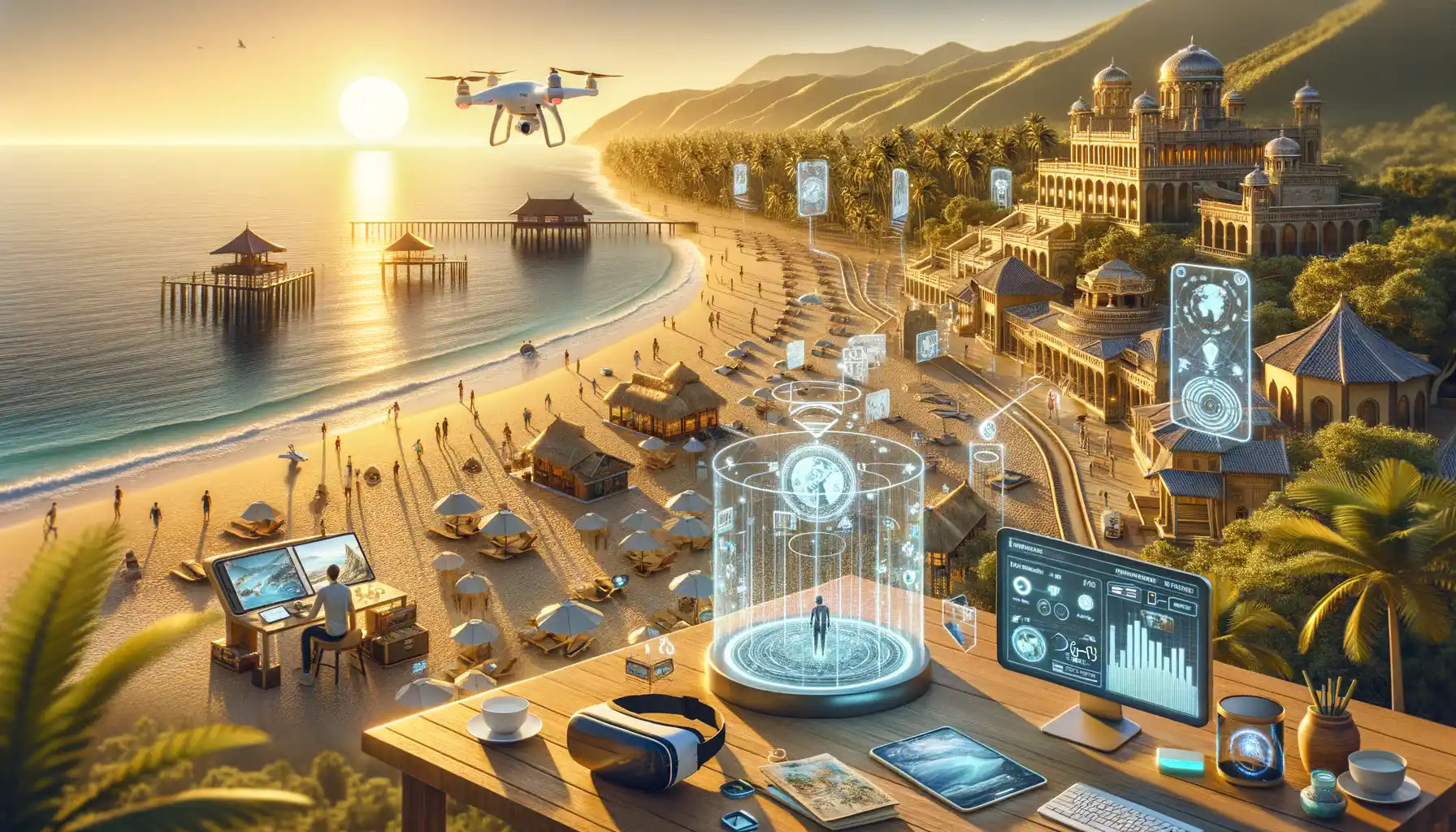
AI-Powered Storytelling: A New Era for Coastal Tourism
Picture this: you’re scanning your phone for a dreamy beach getaway, and instead of generic ads, an AI assistant curates a personalized itinerary just for you. It knows you love secluded coves, candlelit dinners by the waves, and paddleboarding at sunrise. Welcome to the future of coastal tourism marketing, powered by the magic of AI-driven storytelling.
Tourism brands are tapping into AI’s ability to craft hyper-personalized experiences. Imagine hotel ads that greet you with a virtual tour of your ideal seaside suite or emails that include beach soundscapes tailored to your favorite relaxation vibe. AI doesn’t just sell; it tells a story—your story, unfolding along the coast.
- Hyper-localization: AI tools can adjust content based on weather patterns, tidal charts, and even local cultural events. Forget cookie-cutter campaigns; we’re talking real-time relevance.
- Immersive tech: Virtual reality (VR) fused with AI can whisk users away to explore a destination before ever packing their bags. Feel the sand through interactive VR tours!
Sustainability Meets Smarter Marketing
The next wave? Using AI to align business goals with environmental care. Think of systems that analyze tourist footprints to manage over-tourism hotspots. AI-powered eco-solutions could mean more shell-filled beaches, less overcrowding, and happier marine life. Coastal marketing isn’t just about destinations now—it’s about preserving them too.



